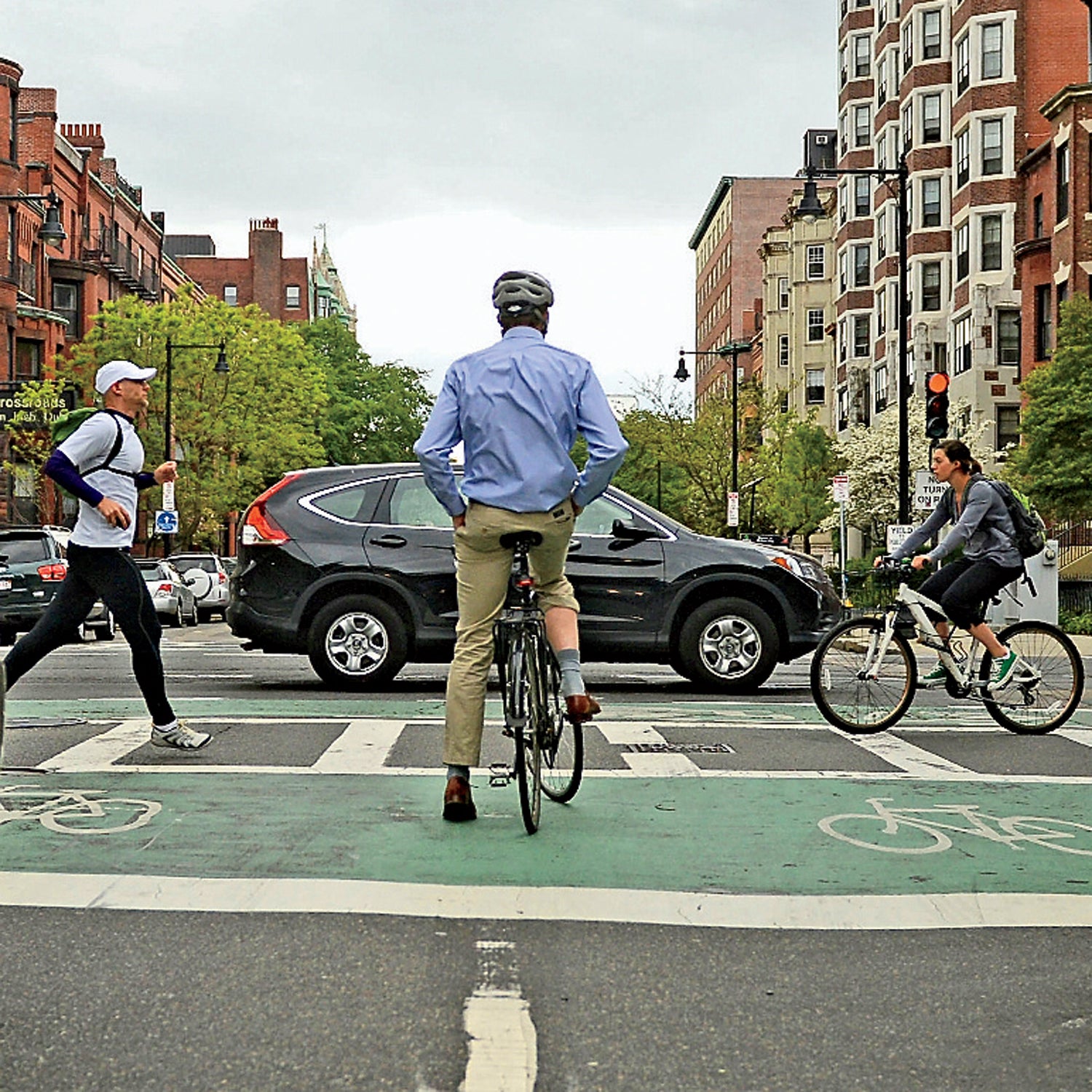In 2007, Boston was ranked the worst biking city in the U.S. by —for the third time. There were plenty of reasons: lack of lanes, poor road conditions, boorish drivers. Today, Boston is on its way to becoming one of the country’s most bike-friendly cities, and it’s the first to create a public bike program targeting low-income communities. The main reason for the one-eighty: former Olympian Nicole Freedman.
Freedman grew up in the Boston suburbs, rode professionally for 12 years (she won the national road-racing trial in 2000), and holds a degree in urban planning from Stanford University. In 2007, when Freedman was tasked with heading up the city’s newly launched , the city had zero bike lanes and a dismal safety record. In 2006, there were 36 bike accidents in one intersection alone.
Freedman, 42, was undaunted. She created 14 miles of bike lanes in her first two years on the job and hasn’t slowed down since. The city is . And Freedman recently secured a $15 million grant to build protected lanes, including a four-mile ring around downtown. “Cities need plans,” says Martha Roskowski, VP of the national advocacy group . “But they really need people like Nicole who can turn them into action.”
As Americans have finally begun to embrace the idea of bikes as transportation, other cities have made turnarounds of their own. Washington, D.C., now has six miles of protected lanes, and is on pace to have 475 stations by the end of the year. What sets Boston apart is the progressive bent of its efforts. “It was really important to make sure that we reached residents with low incomes,” says Freedman. “They’re the ones most impacted by transportation costs.” , the city’s bike-share system, recently began subsidizing memberships for those making less than $20,000 a year. In March, Freedman launched , which offers low-income residents a reduced $5 annual Hubway membership if a doctor recommends riding for health reasons. (Nearly 2,500 people have since signed up.) And, finally, Boston Bikes has donated more than 1,000 bicycles to in-need locals. “Cycling is universally appealing,” says Freedman. “We just have to make it accessible.”


